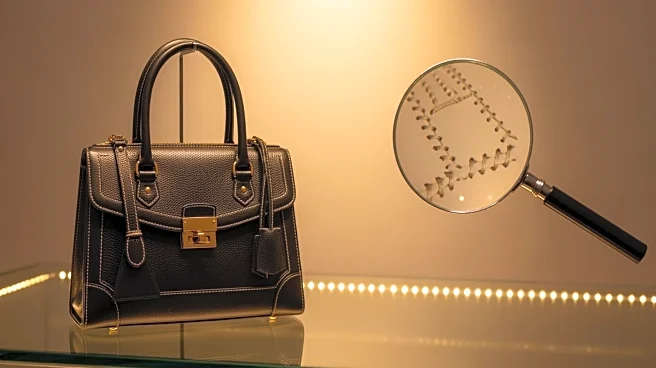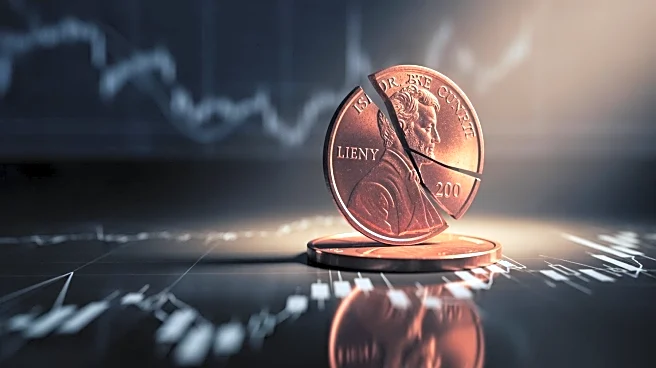What's Happening?
The global resale market for luxury items is growing at an annual rate of 10%, significantly outpacing the firsthand market. A report by Boston Consulting Group and Vestiaire Collective projects the market could
reach $360 billion by 2030. As counterfeit manufacturing becomes more sophisticated, authentication has become crucial for resale platforms. Companies like Carousell and Bunjang are investing in verification processes to ensure the authenticity of luxury goods, offering money-back guarantees to build consumer trust.
Why It's Important?
The rapid growth of the secondhand luxury market reflects changing consumer preferences towards sustainable and affordable fashion. Authentication processes are vital in maintaining trust and credibility in the resale industry, which is crucial for its continued expansion. As consumers become more aware of counterfeit risks, platforms that offer reliable verification are likely to gain a competitive edge. This trend may encourage luxury brands to collaborate with resale platforms to protect their brand integrity.
What's Next?
Resale platforms are expected to continue enhancing their authentication technologies, potentially incorporating advanced AI systems to improve accuracy. As the market grows, more luxury brands may enter partnerships with resale platforms to ensure their products are represented authentically. The focus on authentication could lead to new industry standards, influencing how luxury goods are bought and sold globally.
Beyond the Headlines
The emphasis on authentication in the resale market may drive innovation in counterfeit detection technologies. This could lead to broader applications beyond fashion, impacting industries such as electronics and pharmaceuticals. The shift towards secondhand luxury also highlights a cultural change in consumer attitudes, valuing sustainability and affordability over brand-new purchases.










